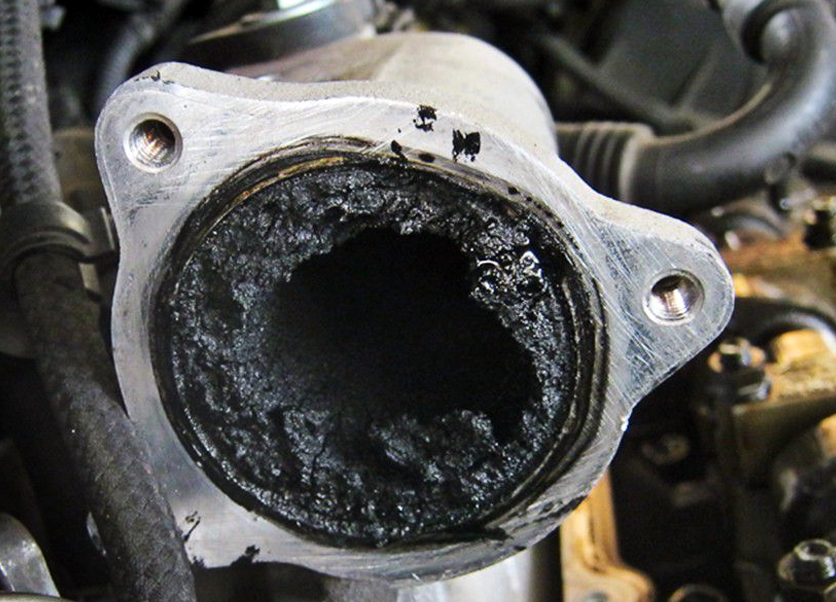
What is EGR delete?
EGR delete is a common question asked by car enthusiasts. Due to bad symptoms with a malfunctioning EGR valve, motorists often wonder if it is better to deactivate (close) the EGR or remove it altogether.
With the EGR off, we ensure that the EGR is cancelled, this after the EGR is removed. We can also cancel EGR by instructing it to permanently drive itself to a closed position. Feel free to inquire through our support how we recommend to perform the EGR delete.
After a while parts of the EGR system become covered with deposits, even in a well-maintained engine. Diesel engines are more susceptible to this problem because of the soot in their exhaust. Frequent driving over short distances accelerates the process in diesel engines. The EGR valve is the first to be affected by soot. These deposits prevent the valve from closing properly and the valve gets stuck in some positions, leading to engine lights. These failures manifest themselves in different ways, depending on the position in which the position of the valve. In addition, the consequences of a stuck valve depend on the engine type and design of the EGR.
Typically, EGR failures lead to irregular idling (varying engine speed) and the engine often stalls and loses power. Vibrations may also occur when accelerating. In gasoline engines, ignition errors (missfires) can occur and diesel engines start running "rough." In diesel engines, a stuck EGR valve reduces turbocharger performance. In some cars, if the EGR system is bad, the ECU puts the engine in limp modewith a limited performance.
What are the reasons for drivers to ask for EGR removal?
The lifespan of the EGR valve is limited. It is impossible to give a guide value at what mileage these fail. It all depends on the driving style of the driver. The main reasons drivers want to remove or cancel the EGR are:
- High repair and maintenance costs
- EGR valve is difficult to clean
- If the regeneration mode is exceeded, negative effects on the engine
What are the benefits of an EGR delete?
We can collect the benefits of an EGR delete under the following headings:
Increased fuel efficiency.
When you restore power to your diesel engine, you also regain overall fuel efficiency. With the EGR delete, you ensure that the exhaust gases are not used back in the engine, keeping everything running and running cleaner.
EGR kit lowers engine temperature
When the valve or coolers of the EGR system become clogged with soot, exhaust gases begin to circulate through the system more frequently. Clogging causes a rise in temperature around the engine. With an EGR removal, your vehicle cannot reuse the exhaust gases resulting in a lower temperature while driving.
Improves throttle response.
Removing the EGR gives your vehicle more power and improves throttle response without sacrificing engine life or fuel economy.
In addition to the above benefits
- Disabling the EGR eliminates the recirculation of burned gas in the intake manifold, increasing engine power.
- In some cases, vehicle fuel consumption is reduced due to the increased supply of fresh air.
- No need for maintenance and replacement of expensive parts.
Are there any disadvantages with an EGR delete?
The advantages of an EGR delete speak for themselves, but we can also mention some disadvantages. Common disadvantages of an EGR delete:
- If you delete the EGR, there may be a problem if the vehicle is still under warranty.
- There may be different emissions than the predetermined emissions specific to your vehicle.
- The color of the exhaust gases may be slightly more black.
How to apply an EGR delete?
If you want to apply an EGR delete, you can always ask us for advice first. We will then explain the appropriate application. You can then load the file in our portal and download the modified file afterwards.
